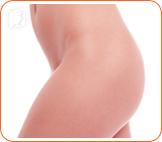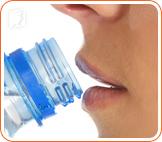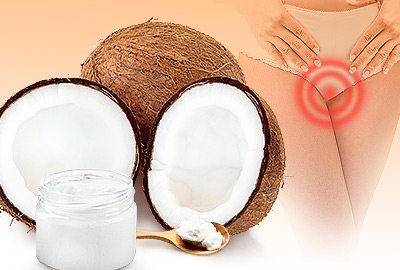
Vaginal dryness, or “atrophic vaginitis”, is a common symptom of menopause. It is characterized by a lack of moisture in the vaginal area, which can cause itching, irritation, burning or stinging sensations. During intercourse, vaginal dryness can also lead to pain and light bleeding. The condition can also affect your day-to-day comfort, libido and emotional state. It can occur to varying degrees and for varying amounts of time.
While vaginal dryness is natural and a normal symptom of menopause, it can cause the sufferer great distress and discomfort. Continue reading to find out more about the menopausal causes of vaginal dryness, and how it can be treated.
Known scientifically as atrophic vaginitis, vaginal dryness is a common condition among menopausal women. Often experienced as a lack of moisture in the vaginal are the condition can cause itching, burning and stinging. Although uncomfortable and distracting the condition is treatable. Learn more here.
What Causes Vaginal Dryness?
Vaginal dryness during menopause is caused, like many other menopause symptoms, by decreasing levels of estrogen. Usually, the vaginal walls are lubricated with a layer of moisture, which is excreted through the blood vessel walls around the vagina. However, changes in estrogen levels disrupt this process.

During menopause, the ovaries stop producing as much estrogen. Just one consequence of this is known as atrophy, a term used to describe vaginal walls becoming thinner, dryer and less elastic. This, coupled with a reduction in vaginal secretions, contributes to uncomfortable dryness of the vaginal area. Furthermore, lower levels of estrogen affects the pH level of the vagina, leading it to become more alkaline, increasing vaginal irritation and vulnerability to infection.
However, other external physical causes that can also contribute to the condition include smoking, excessive alcohol consumption, or medications such as anti-depressants. Emotional factors (stress, anxiety and relationship issues affecting arousal and libido), can also affect the level of lubricant naturally secreted in the vaginal area.
What Can be Done about Vaginal Dryness?

Vaginal dryness is not a permanent condition, and can be tackled effectively through a number of adjustments to your day life. Staying healthy, keeping hydrated and maintaining a balanced diet will help ease your vaginal dryness. Natural supplements, such as soy and flaxseed, can also help address the effects of low levels of estrogen. Discomfort experienced while suffering with vaginal dryness can also be relieved through vaginal moisturizers, vitamin E oil and using water-based lubricants during sexual intercourse.
Key to tackling vaginal dryness is understanding what it is and what causes it. In addition to lifestyle changes, you may also wish to consider alternative medicines or medical treatments to combat vaginal dryness.
If you're suffering from vaginal dryness it is important that you only use products designed for vaginal lubrication. If in doubt, speak to a pharmacist.
Sources
- Love, Susan M.D. Menopause and Hormone Book. New York: Three Rivers Press, 2003.
- "Vaginal Dryness". Mayo Clinic Health Resource. 2007
- "Vulvovaginal Symptoms". The Changing Body: Menopause Handbook. www.menopause.org



